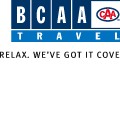Part 5
Steve: Now, I noticed on your website that you also get involved in advocacy; that is, to take a position on certain policy issues, presumably that affect the different businesses that you're in, whether it be the motoring public and laws that affect, you know, investing in presumably our transportation infrastructure, or things of that nature. Could you describe a little bit-is that taking advantage of the fact that you have 750,000 members and that therefore, presumably, the government should be listening to what a group of 750,000 people think about a subject? How do you get into this advocacy area?
Colin: Well, this really gets back to our roots as an auto club. One hundred years ago when we were formed, it was a group of motoring enthusiasts who all shared the same interests, and we've really kept that going all along, and we really feel that we're the voice of the motoring public, the traveling public by automobile. So issues with respect to automobiles, car safety, gas prices, road infrastructure, all those things that affect the motoring public, we typically have a position on. We ask our members, we lobby on behalf of our members for changes and whatnot. For example, one thing that we're lobbying for is to see if there's a way to have tax incentives for people who purchase fuel-efficient vehicles. That type of thing that would be in the best interests of the motoring public is what we try and focus on. In addition to that, we have a charitable organization that works with BCAA called the Traffic Safety Foundation, which is a group that's dedicated to traffic safety and helping, for example, schools and their crosswalk programs, and making sure that young families have properly installed and inspected car seats and whatnot, is a big focus for us. Steve: Now, if you're advocating for tax breaks for people who drive fuel-efficient vehicles, what does that do to those of your members who are very happy driving their gas-guzzling SUVs? Could there be a conflict of interest of some of your members?
Colin: Well, I think even our members driving the gas-guzzling SUVs would drive the same vehicle if it was available in an energy-efficient version. So by providing tax breaks for that kind of vehicle, it should give manufacturers more incentives to put those kind of engines in more vehicles, so we actually think it would benefit everyone if it made it more economical for manufacturers to focus on that technology.

